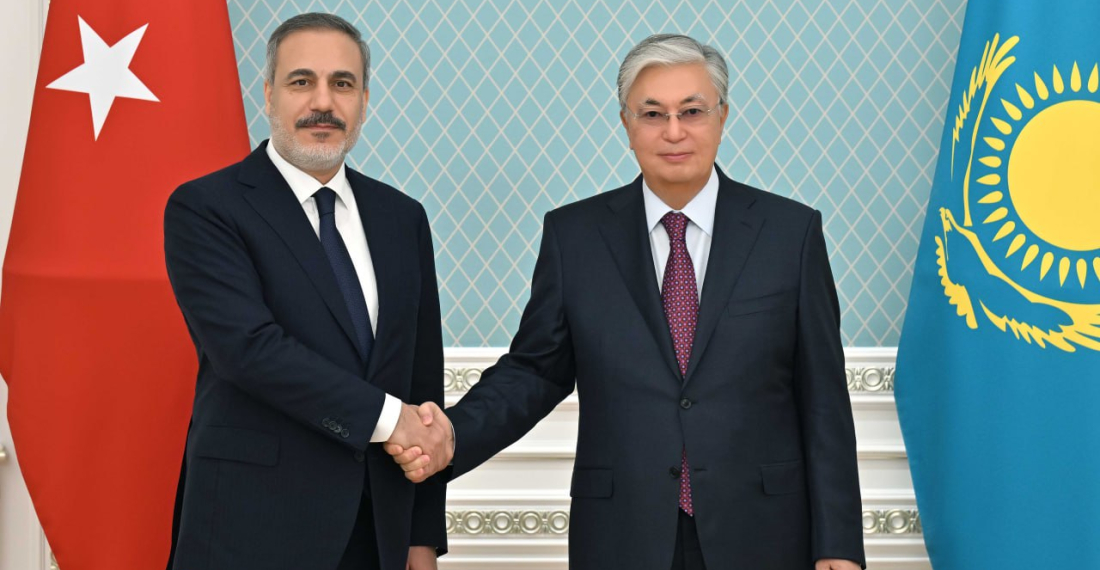Turkish Foreign Minister, Hakan Fidan was in Kazakhstan this as Türkiye intensifies its contacts with Central Asia, and the Turkic republics of the region with whom it shares strong historical and linguistic ties.
In Astana, Fidan met with the country's president Kassym-Jomart Tokayev on Monday (11 September). This was Fidan's first visit to Kazakhstan after his appointment as Turkish Foreign Minister, He was previously head of the country's intelligence service.
The visit is part of the preparations for the next summit of the Turkic States which will take place in Astana in November. The Organisation of Turkic States was established shortly after the collapse of the Soviet Union as Türkiye sought to rebuild old historical and ethnic and linguistic ties with the region. But at the time Russian pressure stopped the governments of the region from getting too close to Turkiye. The situation is now very different, and with governments across Central Asia seeking new openings to the rest of the world, the Turkish connection is becoming increasingly important.
At their meeting on Monday, Tokayev congratulated Fidan on his recent appointment and expressed confidence that he would significantly contribute to the development of Kazakh-Turkish relations.
Tokayev noted that this year marks an important date – the 100th anniversary of the Republic of Türkiye founded by Mustafa Kemal Atatürk and his associates.
“Over the course of a century, the country has achieved enormous success in the political, socio-economic, cultural, and humanitarian spheres. Türkiye has become an authoritative state in the international arena, participating in resolving regional and global problems,” Tokayev said.
According to Tokayev, Türkiye is Kazakhstan’s most important strategic partner, and relations between fraternal countries have reached the level of an expanded strategic partnership.
“Türkiye is one of Kazakhstan’s four leading trading partners. Last year, bilateral trade increased by 54%, reaching $6.3 billion. We agreed to increase this figure to $10 billion in the near future. Investment cooperation between the two countries is also developing. Türkiye is among the top 10 investors in Kazakhstan. The sides are developing 36 projects worth more than $2.8 billion. We believe cooperation between the two countries has great prospects,” Tokayev noted.
In turn, Fidan conveyed greetings from President Recep Tayyip Erdoğan, highlighting that the Turkish side intends to make every effort to promote cooperation between the two countries and take interaction within regional and international structures to a new level. According to Fidan, the Turkish President plans to comprehensively discuss the prospects for strengthening the strategic partnership between the two states during his upcoming visit in November, which is set to coincide with the summit of the Organization of Turkic States.






